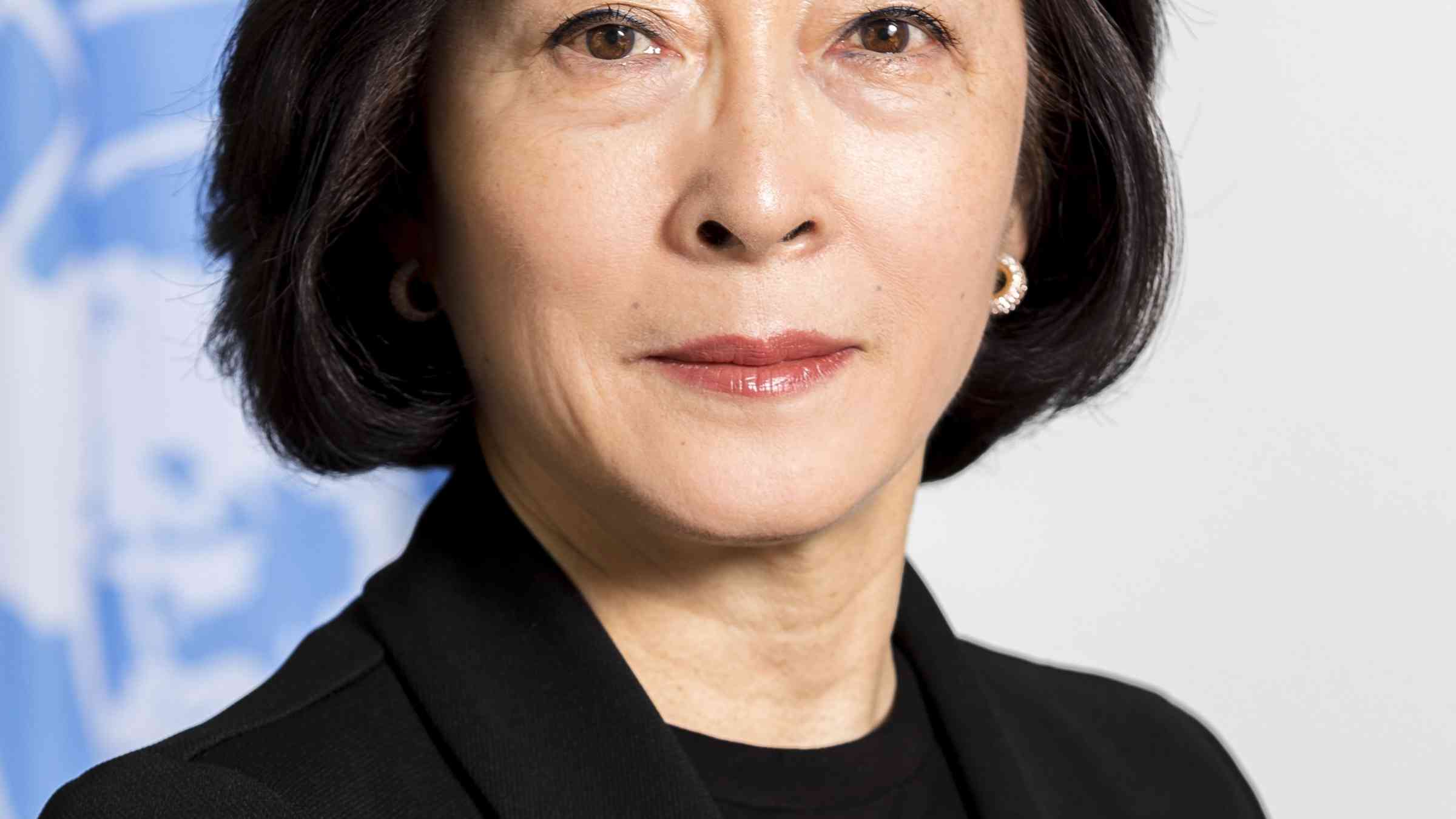SRSG Mizutori, Opening Remarks, UNDRR ROAS: Symposium of Arab Countries in Commemoration of the IDDRR

Mami Mizutori, UN Secretary-General's Special Representative for Disaster Risk Reductiion
(Check against delivery)
SRSG Mizutori, Opening Remarks
UNDRR ROAS: Symposium of Arab Countries in Commemoration of the IDDRR
Tuesday 13 October 2020
Ladies and Gentlemen,
I am pleased to be taking part in this webinar with such an esteemed group of speakers from the League of Arab States, our partners from the UN agencies, government representatives, and all attendees.
It is an extraordinary time to be alive. COVID-19 is beyond anything experienced within living memory.
Our lives have been transformed by the pandemic and the restraint it has imposed on human behaviour.
In addition, it is now estimated that it could cost the global economy some US$21 trillion. Current expenditure on disaster risk reduction pales into insignificance by comparison.
Before the arrival of the pandemic the Arab region was already living through the impacts of war and climate change. Millions have been driven from their homes.
Poverty levels have risen to an estimated 115 million people overall that is 25% of the total Arab population.
New tragedies continue to unfold.
Sudan is still coming to terms with record floods which took at least 155 lives and affected 875,000 people and have left large swathes of the country vulnerable to water-borne disease.
Over 200 lives were lost in Lebanon and 300,000 people have been left homeless following the explosion at Beirut port.
There is no region in the world where the systemic nature of disaster risk is so visible and challenging as in the Arab States.
Seven countries in the Arab region are covered in the COVID-19 Global Humanitarian Response Plan, indicating that they already faced serious humanitarian emergencies before the pandemic.
In total, some 55.7 million people are in need.
The situation in Yemen is particularly dire with 24.1 million people requiring humanitarian assistance.
Yemen is the worst humanitarian crisis in the world yet the resources are not there for life-saving interventions. By the end of September, only $1.3 billion of the $3.2 billion needed in 2020 had been received.
There are similar concerns about support to millions of people in need in Syria, Sudan, Iraq, Somalia, Libya and Palestine.
With the largest gender gap in human development in the world, women in the Arab region are likely to suffer significant consequences of the pandemic.
One-third of Arab countries have fewer than 10 health-care providers per 10,000 people, while the richest third have at least 50 providers per 10,000 population.
This is a brief glimpse of some of the inter-connected issues which need to be tackled if the region is to strengthen its disaster risk governance and start to recover and re-build its resilience.
Too many people are living in contexts in which states do not provide the necessary protections and that is a matter that needs to be addressed in drawing up national and local strategies for disaster risk reduction.
Despite the levels of inequality and humanitarian need there are some successes that can inspire more progress.
The region is seeing increasing engagement at the local level where national strategies for disaster risk reduction must show evidence of taking root.
This region has produced some good examples of how strong disaster governance executed with vision, competence, trust and transparency can avoid unnecessary loss of life.
Good disaster risk governance requires both innovation and common sense, and more than anything it requires strong leadership.
We are in real danger of not achieving the Sendai Framework targets for reducing disaster losses, and we know that nothing undermines sustainable development like disasters.
We all agree that even when countries had in place national disaster risk reduction strategies aligned with the Sendai Framework, they were overwhelmed by the enormity of the COVID-19 pandemic and the ensuing cascade of impacts across society
Today we will hear from the UN agencies, our partners in the Arab region and the Sendai Framework national and local focal points talking about the challenges and highlighting success stories of good risk governance in the region.
We often say that the worst disaster that could happen, has not happened yet.
Let us bear that in mind today and seek to understand what is required to strengthen disaster risk governance across the region.
It is really all about good risk governance.
Thank you for your attention.
Is this page useful?
Yes No Report an issue on this pageThank you. If you have 2 minutes, we would benefit from additional feedback (link opens in a new window).